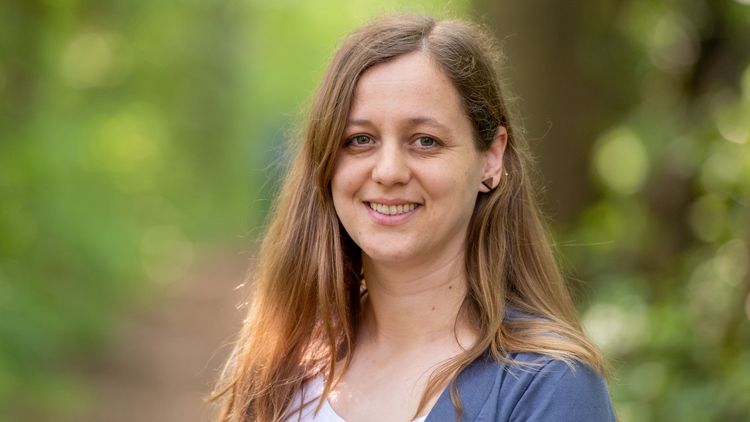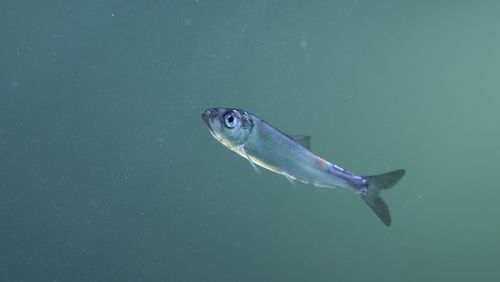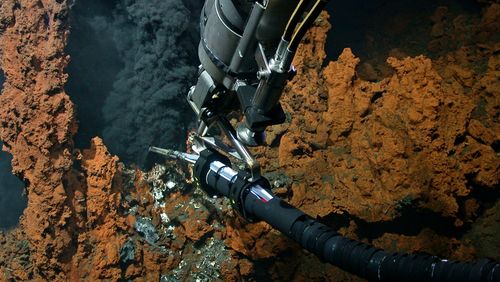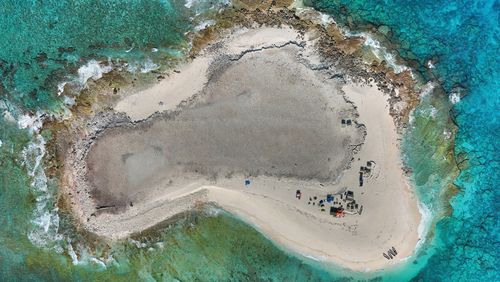For the first time, the most prestigious award for early-career researchers goes to an Oldenburg scientist: geoscientist Sinikka Lennartz receives the Heinz Maier-Leibnitz Prize for her computational modelling of organic carbon in the oceans.
Sinikka Lennartz, Junior Professor of Biogeochemical Ocean Modelling at the University of Oldenburg's Institute for Chemistry and Biology of the Marine Environment (ICBM), has received the Heinz Maier-Leibnitz Prize from the German Research Foundation (DFG). The biogeochemist is one of ten scientists selected to receive Germany's most prestigious award for early-career researchers in 2025. The prize comes with 200,000 euros, which can be used to support the scientists' research for the next three years. The DFG noted that Lennartz had "already made significant contributions to our understanding of the global carbon cycle," and that her findings were “crucial when it comes to modelling future climate scenarios”. In total, 180 researchers from all disciplines were nominated for the awards. The prize-giving ceremony will take place on 3 June in Berlin.
"Sinikka Lennartz is an outstanding biogeochemist, whose theoretical model calculations on carbon in the ocean are a vital addition to marine research in Oldenburg. With her innovative research, she has disproved decades-old assumptions about the dissolved organic carbon in the ocean," explained University President Professor Ralph Bruder.
"I'm very grateful and delighted to receive this award. I see it as great motivation to continue my research on the role of the ocean in the climate system together with my team," said Lennartz. She added that with the prize money they will be able to further integrate mathematical modelling and marine microbiology. "If we can describe the microbial processes in ocean models in greater detail, we’ll be able to predict more accurately how different climate scenarios will impact carbon storage in the sea."
Modelling one of the largest organic carbon reservoirs on Earth
Lennartz's research focuses on dissolved organic matter – a mixture of various organic substances found in seawater which constitutes one of the largest organic carbon reservoirs on Earth. Lennartz combines mathematical models with laboratory experiments and field work at sea to investigate the processes that influence this natural carbon reservoir, allowing her to examine biogeochemical processes from the molecular and cellular level up to entire ocean basins and on a full global scale. A particular focus of her modelling is the influence of microorganisms on the pool of dissolved organic carbon, which was previously underrepresented in global models. Most recently, she has shown that this reservoir – which scientists had believed was stable – is in fact far more responsive to environmental changes than previously assumed.
Lennartz has been a junior professor at the University of Oldenburg since 2022. Before taking this position, she spent a year conducting research at the Massachusetts Institute of Technology in Boston (USA) on a scholarship from German Research Foundation's Walter Benjamin Programme. Lennartz studied geoecology at the Universities of Tübingen and Braunschweig. Study visits have taken her to the Helmholtz Centre for Environmental Research in Magdeburg, the ETH in Zurich and the Woods Hole Oceanographic Institution in the USA, among other institutions. She completed her doctorate at the GEOMAR Helmholtz Centre for Ocean Research in Kiel in 2017 and then moved to Oldenburg in 2019, where she was a postdoc researcher in the Marine Geochemistry group, which acts as a bridge group between the ICBM and the Max Planck Institute for Marine Microbiology in Bremen.
Lennartz has already received several awards for her scientific work, including the Annette Barthelt Prize for outstanding theses in the field of marine research, the DFG's Bernd Rendel Prize for early-career geoscientists, and the Prof. Dr Werner Petersen Foundation's award for excellent doctoral theses. In 2024, she received the Universitätsgesellschaft Oldenburg‘s (UGO) Award for Excellent Research.




